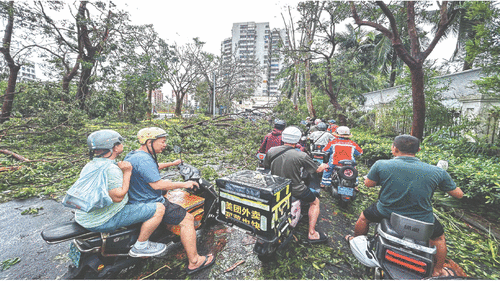ROME: Ask most foreigners what comes to mind when they think of Italy and the answer is likely to contain words like style, art, fashion. But ask an Italian and the most likely answer will be “decline”.
Italy posted the biggest fall in consumer morale in the world in the second half of 2007, according to a twice-yearly survey of 48 countries by market information firm Nielsen.
Italians are living under a “cloud of gloom,” the report said.
The findings are no surprise to anyone living here. The protracted garbage crisis which has filled the streets of Naples with rotting rubbish is symbolic of the popular mood.
Modern day Italy is in some ways reminiscent Britain in the 1970s, when trash on the streets during a strike-ridden “winter of discontent” was also emblematic of a seemingly intractable national decline.
Italy is the third largest economy in the 15-nation euro zone but its infrastructure is inadequate and outdated, jarring with its position among the Group of Seven rich nations.
Growth has lagged its euro zone peers for well over a decade regardless of the government in power, dogged by weak consumer spending as purchasing power has been eroded by stagnant salaries and sharply rising prices for basic goods.
Since 1990 productivity has lost momentum and gross domestic product has grown 15 percentage points less than the European Union average, making Italy the weakest performer in one of the slowest growing areas in the world.
“There is neither hope nor anger, nor commitment nor the will to change, only a great resignation,” sociologist Luca Ricolfi wrote recently in La Stampa.
Most Italians blame their politicians, and it’s easy to understand why. Italy’s political apparatus costs twice as much as France’s and Germany’s, four times as much as Britain’s and 10 times as much as Spain’s. And by any measure it doesn’t give value for money.
Parliamentary procedures are so slow that reforms can take years to pass and, after amendments from dozens of parties, are invariably weakened versions of the original plans.—Reuters












































Dear visitor, the comments section is undergoing an overhaul and will return soon.